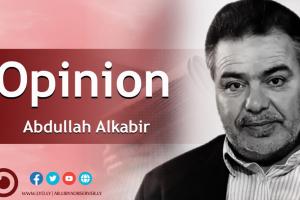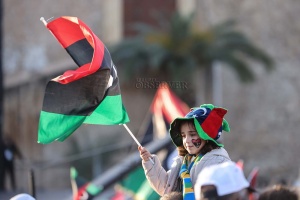By Abdullah Alkabir, Libyan political writer and commentator
Why do we call for an international investigation into Derna disaster?

Defining responsibility for Derna disaster, in a clear manner with no room for any further interpretation, is the most important expected result of the investigations supervised by the Public Prosecution.
It is certain that these investigations will take some time to complete all evidence, before charging anyone proven to be negligent, or failed to Implement an effective response that fulfills all the procedures required for such kind of a situation during the preparation phase, to ensure that no casualties occur or if any, they are to their minimum levels.
Without ignoring the magnitude of corruption over the past decades, it is certain that government division, financial and administrative corruption, weak oversight and follow-up, and absence of implementation tools for the authority are prominent factors in the disastrous aftermath of Hurricane Daniel.
For a whole decade, the authorities, east and west, were consumed by their conflicts, maximizing their influence and authority, with no initiative whatsoever, to initiate reform and construction. This aggravated the state of comprehensive collapse in all sectors and fields, including the destroyed infrastructure in all Libyan cities.
However, these factors alone are not enough to explain such a huge toll of victims. The volume and height of water in Derna Valley had reached dangerous levels, and with the continued heavy rain, flooding will be inevitable, and the dam may not withstand the force of water, and its collapse is an inevitable reality, even if it was at its best, as rubble dams collapse and are washed away if water level exceeded the height of the dam.
Therefore, investigating the negligence of dam maintenance, and revealing any embezzlement of funds allocated for their maintenance, is a final investigation that will be carried out by the prosecution, even if the disaster did not occur, as it has the jurisdiction to follow up on public money expenditure.
Therefore, the responsibility falls on the political authority, which did not implement the procedures and strategies followed when preparing for a violent natural phenomenon, which was predicted, and its time was known, as it struck several countries before descending on the cities and villages of the Green Mountain, in eastern Libya.
Given that all authorities are aware of the existence of cracks in the dams, as it is further highlighted by the scientific study, published in a peer-reviewed university journal, that sounded the alarm of the dams that needed maintenance, and that the best measure to avoid the danger was to evacuate the areas exposed to floods, in order to preserve lives and some of the property that can be removed.
However, the authorities (intentionally or ignorantly) did the opposite of what was dictated by the usual precautionary measures, in the face of this type of natural disaster, which is imposing a curfew, and the torrents swept through homes, leaving behind such a huge number of victims.
Many individuals and entities are demanding an international investigation into the disaster, not because of a lack of confidence in the local judiciary, or doubting its capabilities and integrity, but because it is burdened with cases of all types of crimes, which have reached an unprecedented number, for multiple reasons that this is not the place to list. Furthermore, it does not have the tools to bring in any potential defendants, especially those who are armed, and will not heed to any call to investigate their possible responsibility for this high toll of victims. Moreover, some members of the prosecution will be subjected to pressure, threats, or restrictions and therefore, would be prevented from exercising their prosecution duties and tasks in some areas.
Requesting an international investigation into the disaster does not aim to refer the crime file to international justice, but rather to reveal the complete truth and determine who is responsible for the disaster. As for accountability and trial, it is a local matter handled by the judiciary.
International investigators are supposed to be assigned by the United Nations, and therefore no accused individual, no matter how strong he is, will dare to threaten them, and if anyone tries to obstruct them, he will put himself in a position of suspicion. The United Nations and the Security Council have their deterrent tools for those who may try to thwart the investigation.
Disclaimer: The views and opinions expressed in this article are those of the writer, and do not necessarily reflect those of the Libya Observer



